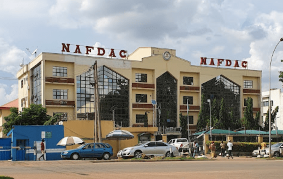Fake Drugs And Consequences On Local Businesses, Foreign Direct Investments
Posted on March 28, 2025

Value creation, problems-solving, financial freedom and wealth creation, building a lasting legacy, making an impact, and contributing to national development rank among the factors of motivation for most investors.
But, for dealers in counterfeit, fake and substandard pharmaceuticals, a combination of factors, including greed, inordinate ambition and desire for quick wealth, profiteering, lack of empathy and a tendency for criminality feed their hunger.
The increasing activities of drug counterfeiters continue to pose a devastating impact for the local drug manufacturers and sale in Nigeria, with fake and substandard drugs assuming a significant public health concern in Nigeria.
Disturbing statistics show that as of 2022, up to 70% of drugs in circulation were either counterfeit or substandard, according to the National Primary Healthcare Development Agency (NPHCDA). A further study by the National Agency for Food and Drug Administration and Control (NAFDAC) noted that nearly 41% of pharmaceuticals in Nigeria were counterfeit, while 14.7% of drugs in circulation were fake.
Approximately 500,000 people die annually from counterfeit drugs in sub-Saharan Africa, underscoring the severity of the impact of counterfeit and substandard drugs on the health and quality of life of Nigerians, the pharmaceutical sector, local investors, and prospective foreign investors.
Given their pivotal role, the activities of unscrupulous profiteers engaged in the illicit business of packing and selling fake drugs take a significant toll on genuine local drug makers and their investments. Emzor Pharmaceuticals’ US$23m Active Pharmaceutical Ingredients (API) manufacturing plant in Sagamu, Ogun State, is one of such significant investments at risk.
The multimillion dollar investment, a World Health Organization – (WHO) compliant factory occupying more than 60 hectares of land, is West Africa’s largest API facility.
The factory, also cGMP – compliant, was set up to combat the pervasive threat of malaria in Nigeria and sub Sahara Africa and has commenced the production and supply of millions of doses of medication ranging from antimalarials, pediatrics care, vitamins, and antiretrovirals to various international organisations through partnerships for public health intervention.
With the capacity to produce 400 million metric tonnes of quality APIs annually, and creating thousands of direct and indirect jobs, the API complex boosts Nigeria’s healthcare system significantly and government revenues in taxes, and has been acknowledged by a wide spectrum of influencers as a significant investment by Emzor Pharmaceutical and a significant contributor to Nigeria’s GDP growth.
Among the key stakeholders that have undergone facility tours of the complex are Senate Committee on Health, Federal Ministry of Health top officials, and NAFDAC top echelon, with lavish commendations for Emzor under the leadership of Dr. Stella Okoli for the huge investment.
The rising menace of drug counterfeiting, however, can alter the positive trajectory if concerted efforts are not scaled up to halt the booming illicit business. Counterfeiting hurts the consumers, local manufacturers, the government and the economy, with wider social and economic implications across multiple spheres.
Drug counterfeiting undermines the contributions of local pharmaceutical companies and other investors. It is capable of inhibiting the Federal Government’s efforts on foreign direct investments (FDIs) drive. Loss of investors’ confidence in the nation’s economy will inhibit GDP growth significantly.
Even though our local pharmaceutical companies produce high-quality drugs, the presence of counterfeit drugs can create a market barrier for made-in-Nigeria in other markets. This will limit the capacity of local companies to expand their operations and market, as well as deny them foreign exchange earnings.
Counterfeit drugs can erode trust in Nigeria’s healthcare system, making it challenging for healthcare professionals to provide effective care. Loss of investors’ confidence in the nation’s economy can also deter investors from playing in other sectors and industries.
The significant health risks posed to consumers include treatment failure, adverse drug reactions, prolonged hospital visits, and even death. This is a negative score for the government’s efforts at encouraging the patronage of local health institutions and stemming medical tourism.
Loss of public trust in the nation’s health system and investors’ confidence can be challenging to regain. The implications for local pharmaceutical companies and the national economy include reduced investment volume, which is a big threat to national GDP growth.
Counterfeiting can create challenges of business fundamentals such as sustainability and profitability for local pharmaceutical players. This means they will be denied the needed capital to grow and scale. Consequently, pressure of survival can lead them into taking difficult cost-cutting measures, including pay cuts for their workers, redundancy or outright staff disengagement.
The economic and mental burden on individuals, families and the government include pushing the cost of treating ailments up because of decreasing efficacy of drugs. Pressure on people’s disposable income, especially low-income earners, can aggravate mental illness. The nation’s healthcare facilities will overstretch due to a surge in the number of people seeking medicare.
Hence, recent regulatory enforcement actions by NAFDAC’s director general, Prof. Mojisola Adeyeye and senior management teams supported by security operatives, are laudable. The multi-location raids on drug counterfeiters in Idumota, Aba and Onitsha, which led to the sealing of over 3,000 illegal production facilities, confiscation of 24 truckloads of assorted materials and packaging, and arrests of suspects, would go a long way in standardising the sector.
Such steps would also bolster an enabling environment for local investors like Emzor Pharmaceutical who are contributing to the growth and development of the sector and Nigerian economy. Investors’ confidence in the economy would also be stimulated.










